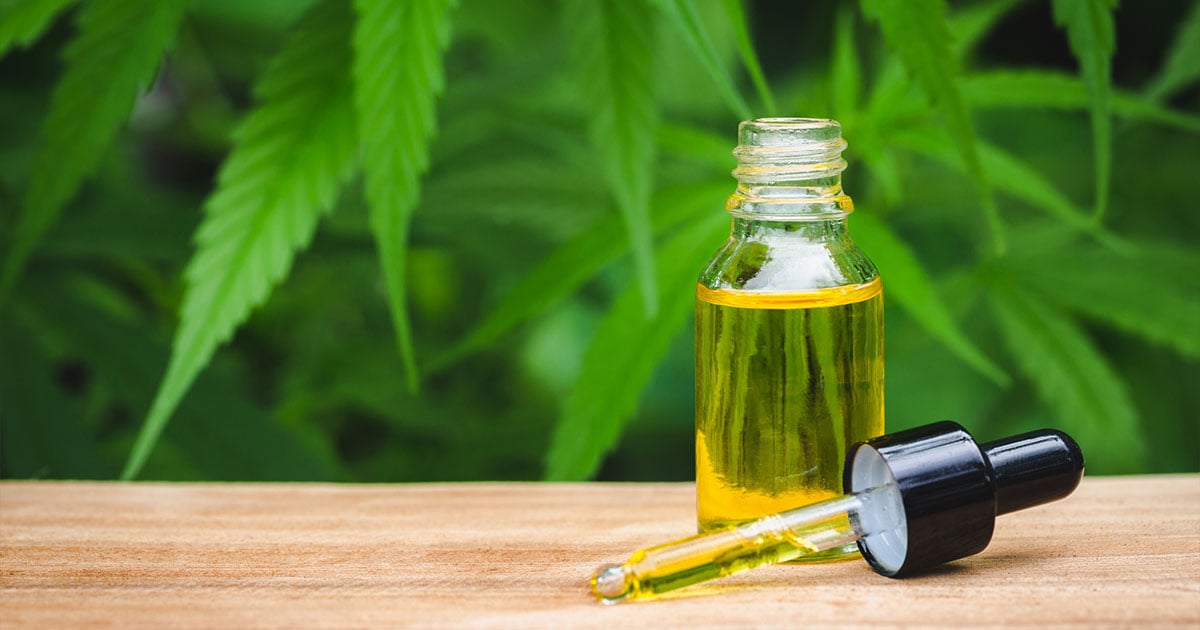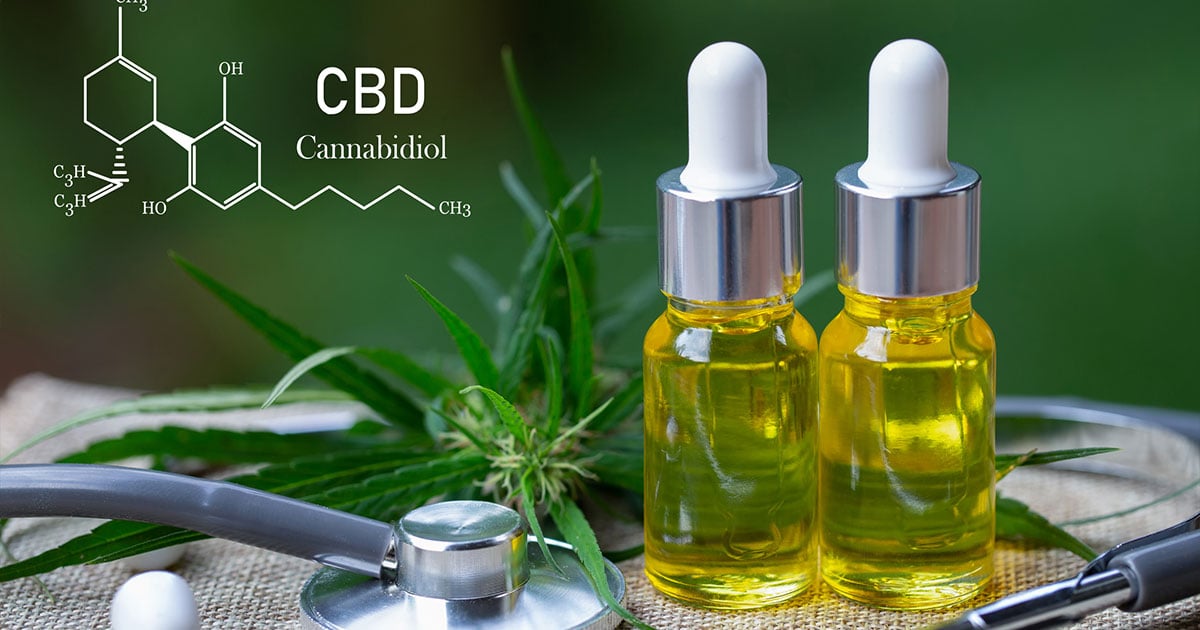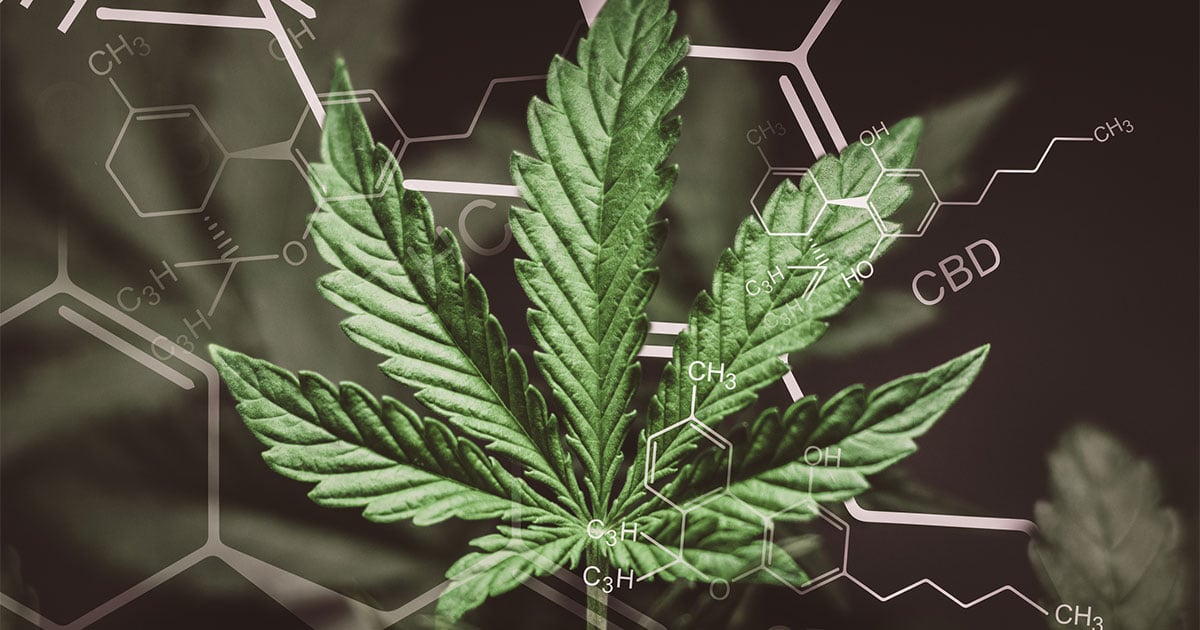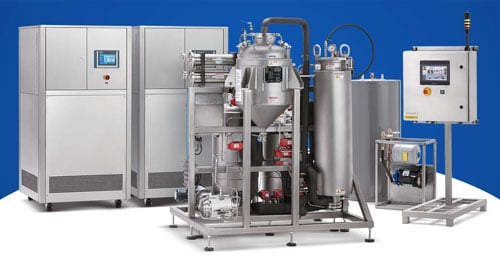
Cannabidiol (CBD) has gained a lot of attention from recreational and medical users for its ability to provide anxiety and pain relief. Recently, however, minor cannabinoids are having their moment in the sun after research has shown they have many health benefits and effects.
Cannabinol (CBN) is a minor cannabinoid with significant potential in the pharmaceutical field. If you are wondering whether to go with CBD or CBN for its potential benefits, in some cases, using them together may be the best option.
What Are Cannabinoids and the Endocannabinoid System?
Cannabis contains over 400 chemical compounds, including cannabinoids, terpenes, flavonoids, fatty acids, phenols, and other components. While many of these do not provide health benefits on their own, they may be able to enhance the effects of other compounds. This phenomenon is known as the entourage effect.
The main compounds in cannabis are cannabinoids and terpenes. Cannabinoids can affect the mind and body and mimic functions of naturally produced endocannabinoids that affect memory, appetite, mood, and pain. Terpenes are responsible for the aroma and flavor of a strain and have distinct effects on their own and alongside cannabinoids.
Our endocannabinoid system (ECS) is a complex network of cell receptors (CB1 and CB2) throughout the body that maintain homeostasis within. Our ECS is involved in regulating memory, mood, energy, pain, appetite, immune function, sleep, and much more.
In people with endocannabinoid deficiencies, cannabinoids act as supplements to restore endocannabinoid balance and treat many conditions and diseases. CBD and CBN are some of the most potent cannabinoids with abundant therapeutic potential.
What Is CBD?

Cannabidiol (CBD) is one of the two primary cannabinoids found in the cannabis plant. The main cannabinoid is delta-9-tetrahydrocannabinol (THC). Unlike THC, CBD does not produce euphoric and intoxicating effects associated with the cannabis “high.”
In most cannabis Sativa plants, CBD is found in trace amounts compared to 15 to 25% THC levels in cannabis Sativa plants. Growers have started to breed cannabis plants that have higher levels of CBD. Some strains can contain up to 30% CBD.
CBD is available in a variety of products with varying concentrations. Over-the-counter CBD products are not FDA-regulated and should be approached with caution despite their non-intoxicating nature. If you are trying CBD for the first time, start with a low dosage and gradually build-up to the desired effect and dose.
CBD Benefits
CBD acts as a CB receptor agonist, unlike THC, which binds directly with cannabinoid receptors. While CBD has a low binding affinity with CB1 and CB2 receptors, it indirectly acts by blocking them so that cannabinoids such as THC cannot bind with them. Keep in mind that more research is needed on these compounds to determine their therapeutic potential and adverse effects.
How does this help? By blocking the overstimulation of specific cannabinoid receptors, CBD can reduce the adverse effects of THC and creates an internal balance.
Interested in giving this cannabinoid a shot? Here are some potential health benefits you can expect from CBD:
- Non-intoxicating
- Reduces anxiety
- Relieves pain
- Relaxes muscles
- Antibiotic
- Stimulates bone growth
- Goes through the transdermal barrier 10 times better than THC
- Reduces acne
- Relieves psoriasis
- Improves circulation
- Reduces nausea
- Anti-diabetic
- Suppresses appetite
- Relieves gastrointestinal disorders
- Antioxidant
- Inhibits cancer cell growth
- Anti-inflammatory
- Neuroprotective
- Promotes brain cell growth
- Anti-epileptic (high dose CBD, low dose THC)
- Relieves rheumatoid arthritis (high doses)
- Treats autoimmune disorders
- Treats Alzheimer’s disease
CBD Effects
You will not feel intoxicated when taking CBD. CBD is a popular non-intoxicating cannabinoid that produces relaxing effects. Its psychoactive effects produce a calming effect on the mind. CBD can reduce stress and anxiety and may even help manage the adverse effects of overconsuming THC.
What Is CBN?
Cannabinol (CBN) is a minor cannabinoid and a byproduct of the natural THC degradation process. As THC ages or when exposed to heat or light, THC oxidizes and becomes CBN. In most strains, you will not find high levels of CBN.
If you have ever smoked old cannabis buds, you may have noticed it had a weak potency. As THC converts to CBN with age, it results in a lower THC concentration over time. Poor storage habits, including prolonged exposure to light and heat, can reduce THC potency and increase CBN content.
CBN is mildly psychoactive and has been thought to produce sedative effects, although the scientific evidence is limited. Based on anecdotal reports, CBN is considered the most sedative cannabinoid and may help provide relief for insomnia and other sleep problems. Indica strains tend to have a higher CBN content than sativa strains.
CBN Benefits
While not very common in the cannabis plant, CBN can have beneficial effects alongside other cannabinoids and even be taken alone as an isolate or distillate product. Here are a few of the most common therapeutic benefits you can expect from this compound:
- Slightly psychoactive (10% as psychoactive as THC)
- Sedative properties
- Relieves pain
- Anti-inflammatory
- Antibiotic
- Anti-epileptic
- Appetite stimulant
- Inhibits cancer cell growth
- Goes through the transdermal barrier ten times better than dela-8 THC
- Stimulates bone growth
- Treats glaucoma
CBN Effects
CBN does not have a strong binding affinity with CB1 receptors. It does have a stronger affinity with CB2 receptors, although not as much as THC. CBN can provide many of the same effects of THC without the intense high and may be used as a sleep aid.
CBD vs. CBN Side Effects
CBD is generally considered a safe compound with no severe adverse effects. However, in some cases, CBD may produce some side effects, including:
- Fatigue
- Diarrhea
- Weight and appetite changes
In a dose-dependent manner, CBD can increase the risk of liver damage when interacting with certain medications, including valproate, teriflunomide, pexidartinib, mipomersen, lomitapide, and leflunomide.
Currently, there are no side effects identified with CBN consumption, although they may exist. CBN research is lacking compared to research into THC and CBD. Since it may be a sedative compound, it can cause sleepiness which may be considered a side effect if you do not intend to sleep. Consult with a health care professional if you have any questions about medication interactions and adverse effects.
FAQs About CBD vs. CBN

Are CBD and CBN Legal?
The 2018 Farm Bill legalized hemp production and defined hemp as a cannabis plant containing less than 0.3% THC by dry weight. CBD products containing more than 0.3% THC are considered federally illegal but can be allowed in states with legal medical or recreational cannabis laws.
CBN can be derived from hemp but is it legal? CBN falls into a legal gray area. While it is not explicitly listed as a scheduled controlled substance, it may be considered an analog of THC, which is a Schedule I substance if made from cannabis instead of hemp.
Most CBN in the U.S. market is made by washing over the biomass material with a chemical solvent to remove the cannabinoids and terpenes. Then the solvent is removed through a purging process by applying heat in a vacuum. This process produces a crude extract, which must undergo a distillation process to create a pure CBN distillate.
What Is the Difference Between CBN and CBD?
Both CBD and CBN are cannabis compounds with many of the same effects and can be used to create cannabis extracts and infused products. Despite their similarities, they also have several key differences.
Let us focus on their similarities first:
Both CBN and CBD provide relief from sleep issues, are neuroprotective, and work against inflammation. Taking them together may even provide enhanced relief.
Now let us look at the differences:
CBD can provide anxiety and depression relief, unlike CBN. Only one CBD-based medication (Epidiolex) has been approved by the Food and Drug Administration (FDA) for two types of epilepsy and tuberous sclerosis complex (TSC). The FDA has not approved CBN medications.
Cannabis plants can be bred to produce a high concentration of CBD, but this process is not as easy for CBN since it is a natural byproduct of aged THC, which requires exposure to heat and light.
Since CBD is far more abundant than CBN, research has focused on CBD, creating a larger market. CBD products are more widely available than CBN.
Why Is CBN More Expensive than CBD?
Generally, CBN products are a lot more expensive than CBD products. THC is the most common compound in cannabis plants, followed by CBD, which can be easily extracted in high concentrations using various solvent-based or solventless methods.
Since CBN is a byproduct of THC, it is only found in a very small concentration in the cannabis plant (up to 1%). Because of its low concentration in cannabis plants, CBN requires a unique extraction method, which can be more laborious and time-consuming than CBD extraction.
CBN isolates can be between 4 to 10 times more expensive than CBD products. Because not many suppliers are making CBN, the price for its products is higher than other cannabinoids like THC and CBD.
As research into CBN grows and more manufacturers begin producing this cannabinoid, the prices will go down. If you are looking to buy CBN products, shop around licensed shops and online retailers to determine the price ranges and ensure you get a product that has been third-party lab tested for purity and potency.
Can CBN and CBD Be Used Together?
Absolutely. Cannabis research suggests that combining cannabinoids such as CBD and CBN provides more benefits than using them in isolation of each other. Both compounds may also improve your mood and produce relaxing effects. For instance, CBN can potentially have strong sedative properties, while CBD may help relieve anxiety, promote deep sleep, and alleviate pain which can help you sleep better.
CBD vs. CBN: Which One Is Right for You?
CBD and CBN both have many potential benefits but are not entirely risk-free. Consult with a healthcare practitioner before starting a cannabinoid-based treatment. Doctors can talk you through the beginning stages of using cannabis to determine an appropriate dose and avoid medication interactions.
Both CBD and CBN have potent effects that can help treat various conditions but should not be used as a treatment alone. These two cannabinoids can be helpful supplements for traditional therapies instead of the only treatment option.
Sources:


